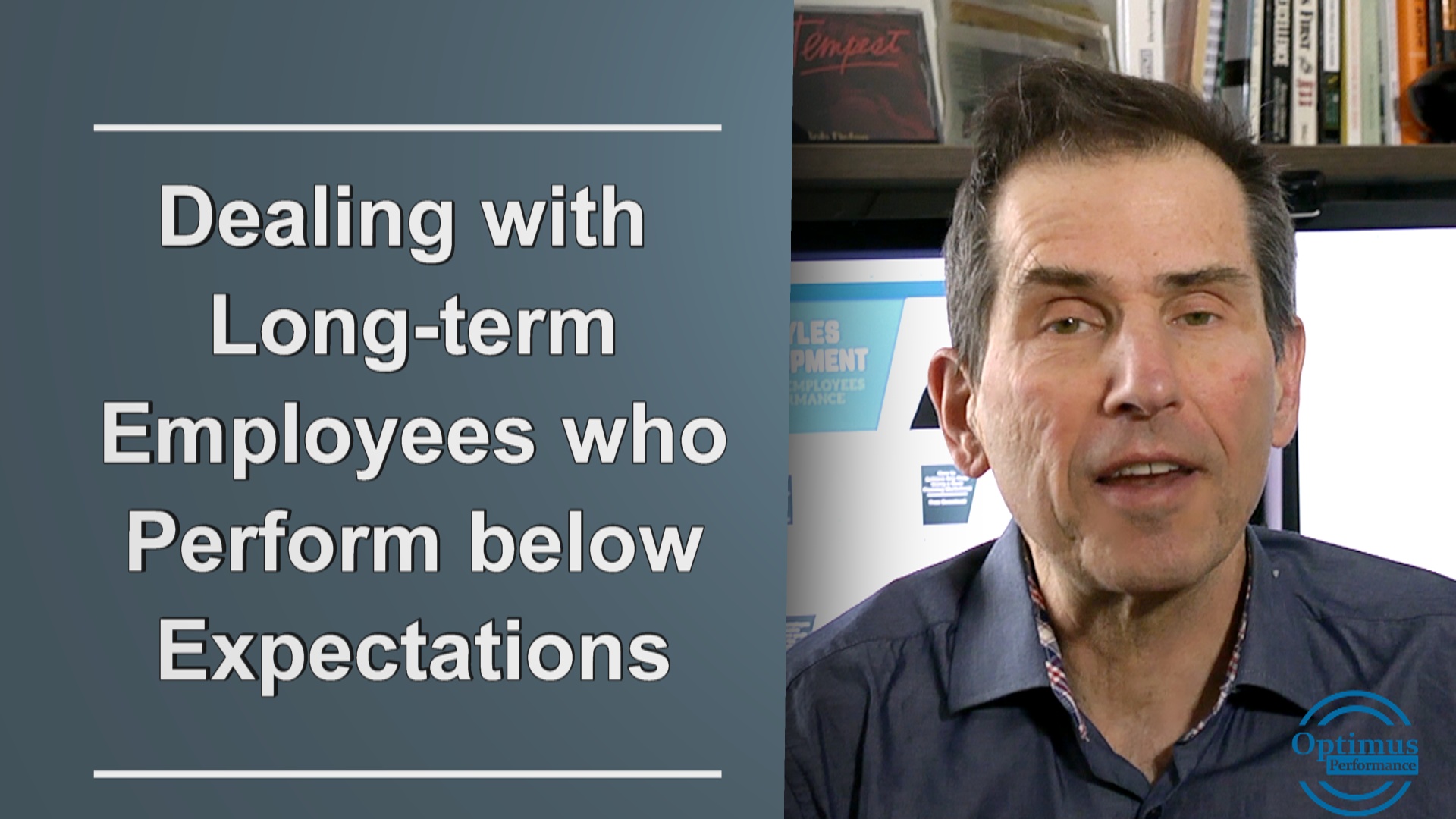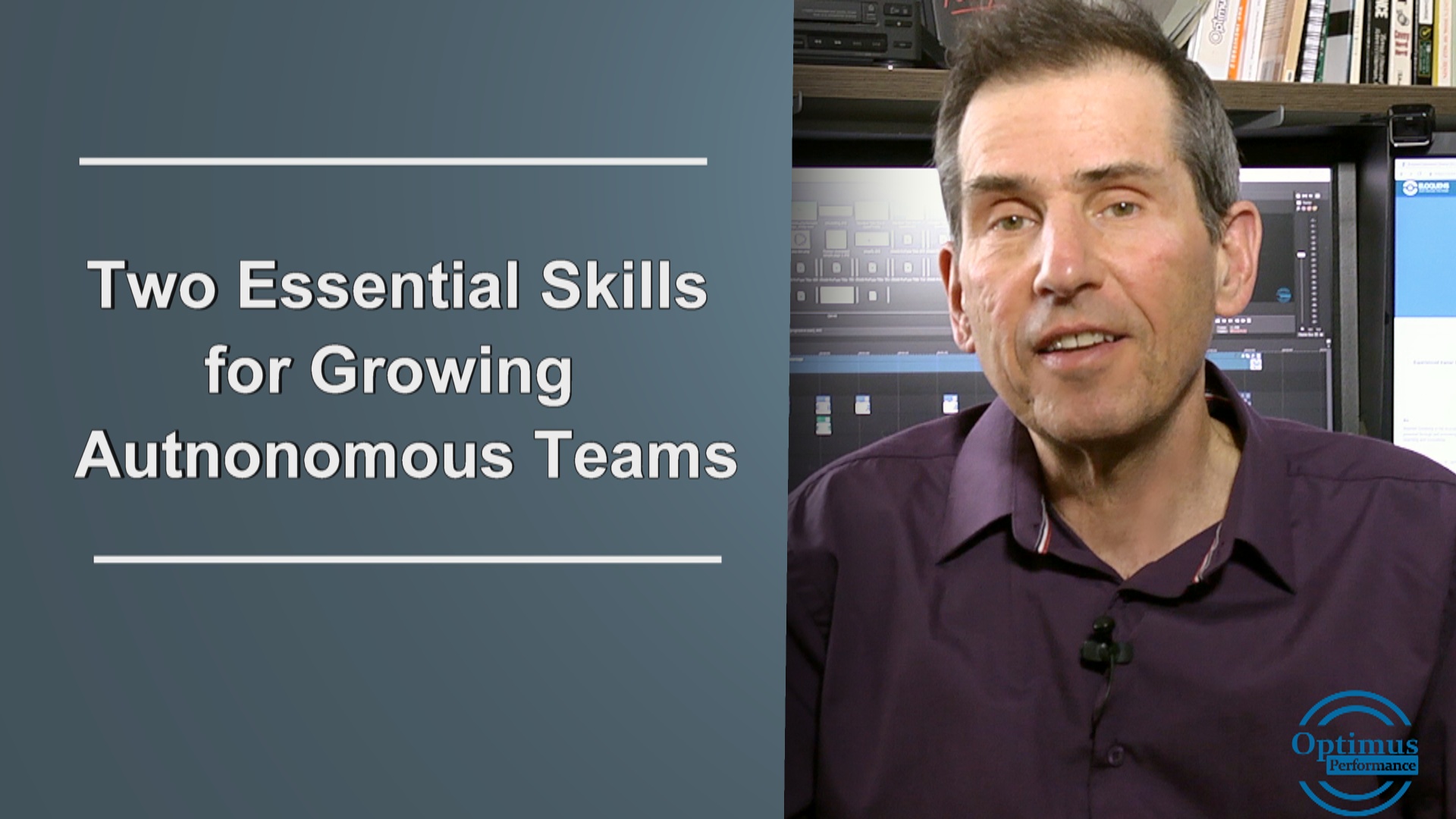I’ve often discussed with business leaders and managers about how to deal with mediocre or poor performing long-term employees.
In fact, this came up recently in a group discussion with a few business owners who I am coaching on dealing with challenges in reaching specific business goals.
One of the members has a goal to diversify the client base of the company to not be reliant on public contracts only. To achieve this requires him and his partner devoting time to strategizing and business development.
The main obstacle is time, but it goes deeper than just scheduling time and this is where the performance of a long-term manager/employee comes into play.
The business owner and his partner find themselves having to help the manager/employee when her workload increases past a certain point. In other words, they end up doing her job and this makes it very difficult for them to spend time to work on their goal.
It seems that this has been going on for quite some time and now, they don’t know how to deal with it. The business owner says things like well, that’s the way she is and she won’t change; we have to help her or the work won’t get done and it will hurt our business; she doesn’t use her team well to assign tasks and delegate and we can’t get her to improve in that skill.
The problem here is that this issue was identified but not addressed many years ago. Now they feel it is too late to fix. But the business cannot scale if this situation lingers. So, what are the solutions?
Solutions
Here are my recommendations to the business owners and anyone who is in a similar situation.
- Meet with the employee and discuss the situation. Explain the goal to diversify the customer base and how important it is for the company and the employees.
- Explain to the employee that they need to devote time to work on this and that you can no longer keep helping the employee do their work if the new goal is to be achieved.
- Ask the employee to think about how they can work with her team to become more autonomous. Listen to the persons response and gauge her willingness to work on the problem. Give her time to think about solutions and schedule another meeting in a couple of days. Let her know you are willing to provide the support required.
- Meet again with the employee and discuss solutions to the problem. Once you are satisfied with the solutions, ask the employee what support they would need from you to apply these solutions. Make sure the solutions and support needs are written down by both of you.
- My suggestion is to use my win-win agreement process and form to put the commitments in writing. The employee should be the one to complete the form and submit it to you. The form states the performance commitments of the employee along with the request support commitments from you. It also includes rewards and penalties for achieving or not achieving the goal.
- Do what you need to provide the support commitments in the agreement. Schedule a review meeting to track the progress of the performance commitments and discuss and find solutions to any challenges. Keep scheduling additional sessions until the commitments have been met and the solutions implemented.
I suggest using the same process for new employees once the basic orientation and training period has been completed. There are always new performance goals that can be set. This is how you assure the organization can continue to grow and scale.
In the example used in this article, the penalty might be a demotion from manager to employee. Right now, the business owners are putting up with the current situation. They are not doing their job as leaders in confronting the employee and making the hard decision, which might be demotion.
The buck always stops at the top and leaders cannot afford to make excuses for the poor performance of their employees and managers and play the role of rescuers. This impedes the organization from growing and sends the wrong message to all the managers and employees.



